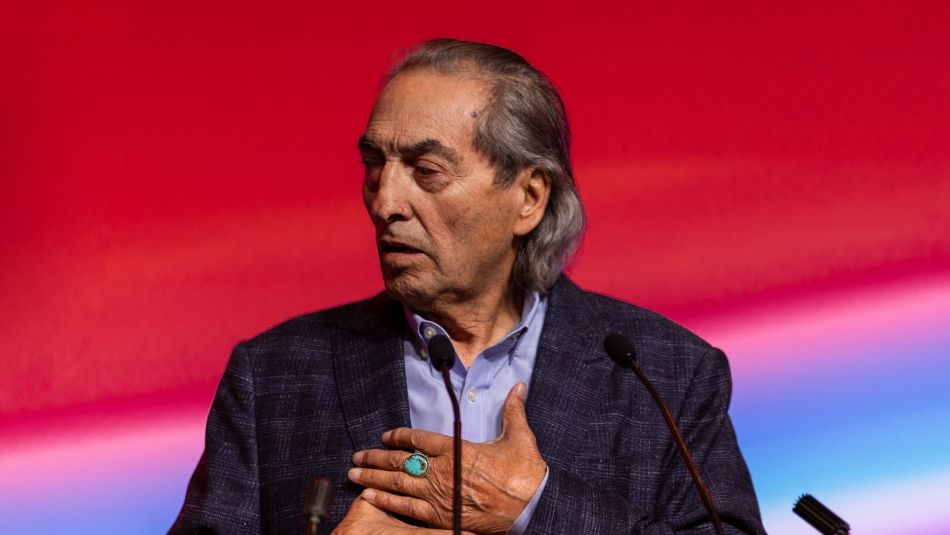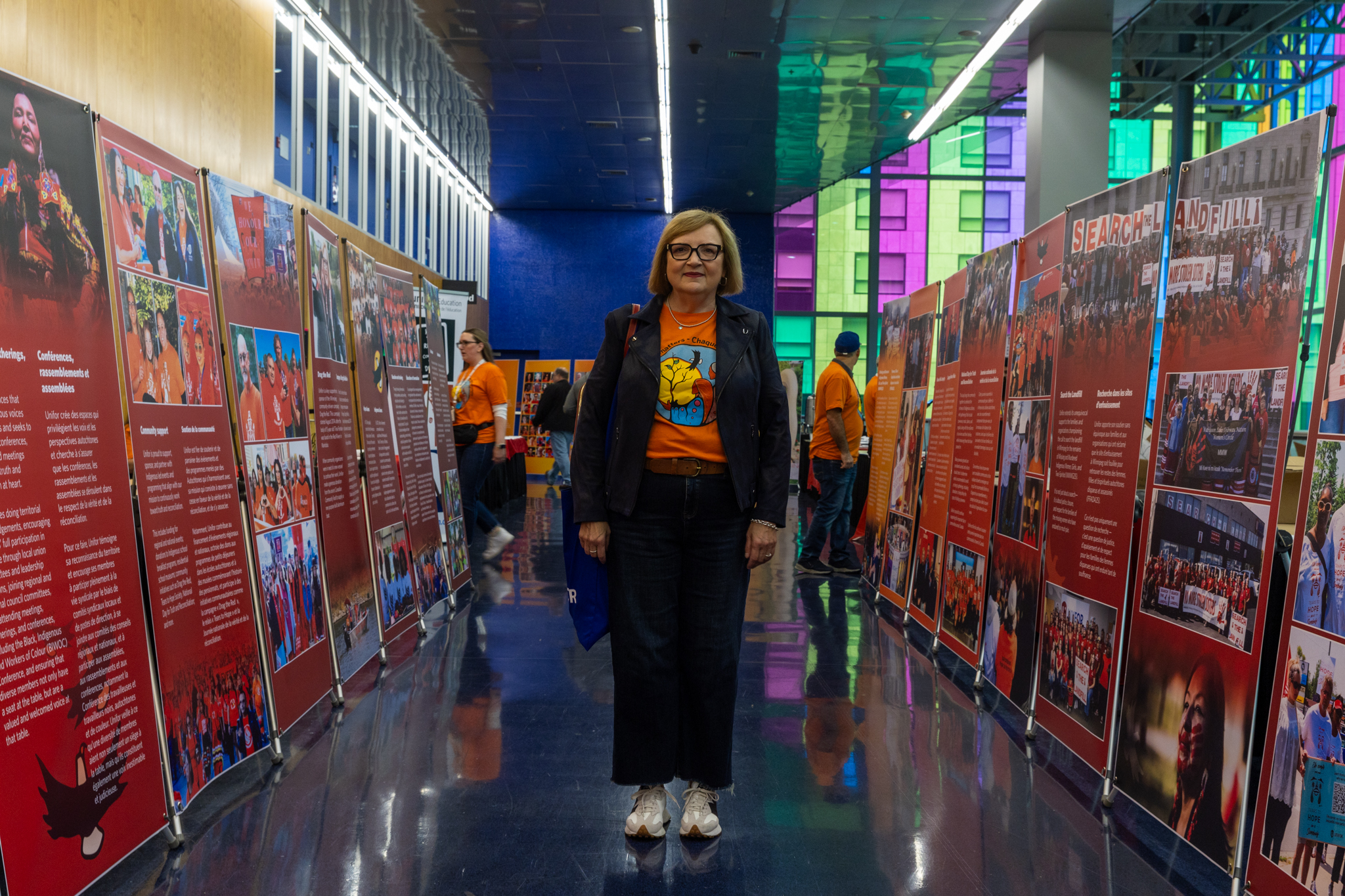
Share
The closing day of Canadian Council presented an opportunity for listening, learning, and teaching about Canada’s dark history of settler colonization and exploitation of Indigenous people on the eve of National Day of Truth and Reconciliation, marked annually on Sept. 30.
“Today, we turn our focus to one of the highest priorities to us as trade unionists and as residents of this land,” said Unifor National President Lana Payne.
“Today, you’ll be asked to challenge yourself, to consider how our union can reaffirm our committment to truth and reconcilliation. To recommit to do whatever we can can to stop the violence against Indigenous women, girls and two-spirited people.”
The main hall at Palais des Congrès de Montréal was awash in a sea of orange shirts, featuring Indigenous artwork created by Dwayne Wabegijig, an Indigenous Woodland artist from Thunder Bay, in recognition of the National Day for Truth and Reconcilliation.
The National Day for Truth and Reconciliation began as Orange Shirt Day, named for the experiences of a six-year-old child, who in 1973, was taken to a residential school and forced to relinquish the prized orange shirt given by their grandmother.
Delegates watched a slideshow highlighting the work Unifor has done surrounding Indigenous relations.
Former National Chief Phil Fontaine shared his personal and powerful experience growing up in two residential schools over a period of a decade and how the orange shirt has transformed into a symbol of Canada’s dark history of genocide.
“We were abused, physically and sexually. The greatest harm that was inflicted on me was the separation from my family, from my community, for 10 years,” Fontaine said in his address.
“When I emerged to go to public school. The purpose of these schools was to eradicate any sense of ‘Indian-ness.’ And that was to deny us to us our culture, our dances, our legends.”
Fontaine was born at the Sagkeeng First Nation in Manitoba, about 150 kilometers north of Winnipeg. His older siblings, father, mother, grandmother all attended industrial schools.
Fontaine bravely began sharing his story publicly in 1990, and he remarked that in recent years, residential schools have gained international publicity and propelled survivors to pursue civil litigation against their abusers.
That process of engaging survivors, Fontaine explained, allowed their collective voices to grow to the point where most Canadians are now aware and knowledgeable about the residential school experiences – the unmarked graves and missing children – and what the lineage of truth and reconciliation means.
“We planted a seed, there was a story here that was not just a lived experience of our people, but that it was a Canadian story…it had to be a teaching moment for all Canadians,” said Fontaine.
“When I see all the orange shirts here, when I listen to land acknowledgements at sporting games or university gatherings. When I see thousands of people march in our communities, I then believe it is possible to change the minds and hearts of Canadians.”
During the Council, the final National President’s recommendation was introduced, which focusing on Unifor affirming its commitment to the 94 Calls to Action resulting from the 2015 Truth and Reconciliation Commission and its commitment to the 231 Calls for Justice that subsequently resulted from the Final Report of the National Inquiry into Missing and Murdered Indigenous Women and Girls.
The recommendation also encourages local unions to further Truth and Reconciliation by learning about the Calls to Action and Calls for Justice, developing membership engagement, participating in Indigenous Solidarity actions, and promoting education and awareness, including through participation in Unifor’s Turtle Island education series.
Payne thanked Fontaine for sharing his moving story and Unifor Indigenous Relations Representative Gina Smoke and others for helping the union continue its work in Truth and Reconciliation by hearing about their lived experiences.
“We all have to recognize that our education is dependent on Phil and Gina and all of our friends having to relive their experiences,” she said.
“It is a big ask of us to require that, so that none of the mistakes of the past, the colonialism, the genocide, are repeated.”
Payne added, “We have a lot of work to do, and we are just getting started.”
As Canadian Council wound to a close for another year, Payne left delegates with the message of solidarity and momentum to keep building on their moment.
“I believe that when we inspire each other in this union, we can do anything,” she said. “We’re going to keep organizing, fighting for workers every day. When we fight, we win!”



